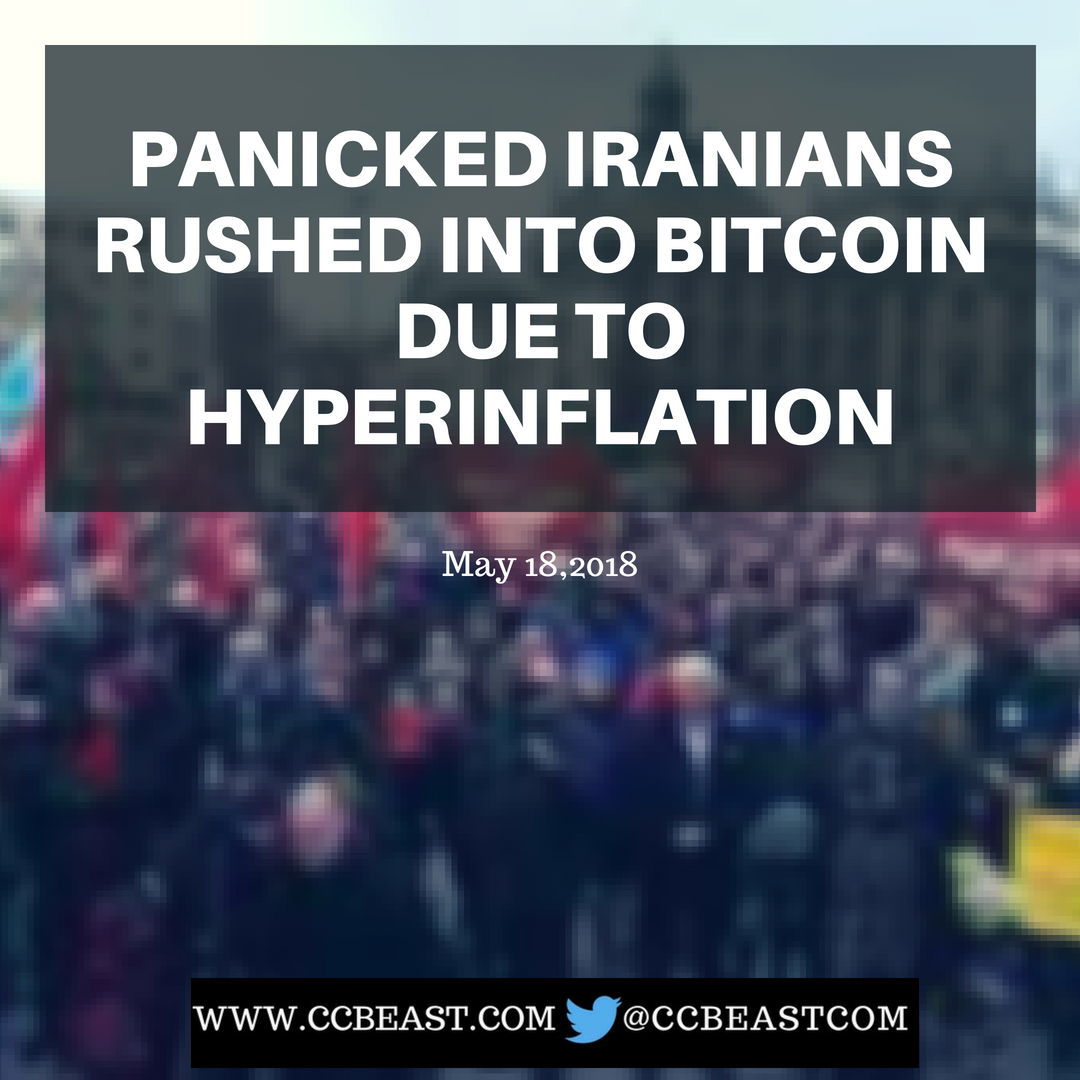PANICKED IRANIANS RUSHED INTO BITCOIN DUE TO HYPERINFLATION

The use of Bitcoin as a store of value was validated, during the panic move of Iranians to the leading cryptocurrency to protect over the hyperinflation. The Iranian rial crashed to an exchange rate of 50,000 to one US dollar after the expected plans to discontinue the nuclear deal with the USA.
Weiss Ratings cryptocurrency analyst, Juan M. Villaverde said regarding the effects of similar crises on the Bitcoin market:
“You can expect the same to happen – in much bigger amounts – in the wake of any banking or monetary crisis in the future,” Villaverde predicted. “In the past, when corrupt governments devalued their local currency or seized assets from citizens, investors ran to the U.S. dollar or gold. Today, many are moving into cryptocurrencies, where their money sits on a globally distributed ledger that no central bank or government can touch.”
As Bitcoin and other cryptos are borderless, they are much easier to be bought as a hedge against risk in comparison to another traditional safe haven in a crisis. Hyperinflation has increased interest for Bitcoin in Zimbabwe and Venezuela.
Even though Bitcoin is illegal in Iran, the community did not give up. There are four full nodes in the country, enough to verify and broadcast transactions.
According to Villaverde, even though Bitcoin is volatile, Iranian rial losing 50% of its value within weeks is much more frightening.

In Venezuela, the authorities even rode the crypto hype, with the somehow confusing creation of the Petro. This is a national cryptocurrency. In fact, the people of Venezuela rely on Bitcoin mining and they are an active user of DogeCoin (DOGE).
The significance of crypto assets was proved when the traditional banking system fails. The existence of a store of value and a medium of exchange is a necessity for the economy’s rebirth. However, the initial informal deals may cause the creation of a large grey economy sector.
Previously, transition countries have resorted to cash, using dollars or other foreign currencies as a safe haven. This was happening until the establishment of the government capital controls. This led panicked Iranians to enter into Bitcoin market, according to Villaverde:
“Millions of Iranians are panicking. They fear not only renewed sanctions but also economic collapse and financial repression. Many are desperately looking for any viable way to leave the country. Many more are scrambling to find a safe refuge for the little money they have left.”
The crypto community may see crises like this as a blessing in disguise, showing the power of the decentralized nature of Bitcoin and other coins.
For Iranians, there may be logistical issues, however. The most exchanges are centralized and under some form of government scrutiny. Nationalities such as Turkish, Syrian, Russian, and Iranian have been blocked from verification by Bittrex as well. However, other channels for exchanging Bitcoin may exist.
According to Villaverde, even in stable economies, crypto portfolio diversification is a hedge against uncertainty.
CCBeast.com is an independent news website which is oriented towards topics related to CryptoCurrencies, Blockchain, Startups, Technological News and the Altcoins ecosystem.
Our team covers everything related to CryptoCurrency community, starting from accurate information about the latest developments, events, ecosystem news and founder stories. Accompanied we will include detailed analysis, breaking news or exclusive interviews related to the CryptoCurrency community.
Please join our Telegram channel to receive the latest news or discuss potential partnerships
https://t.me/joinchat/GVvqpxJOlK4gQ9GmBOIDyQ
@nikolaoskost, I agree. We are likely to see a surge in the value of cryptocurrency when fiat money receives a beating. The decision to join Steemit was not in vein.